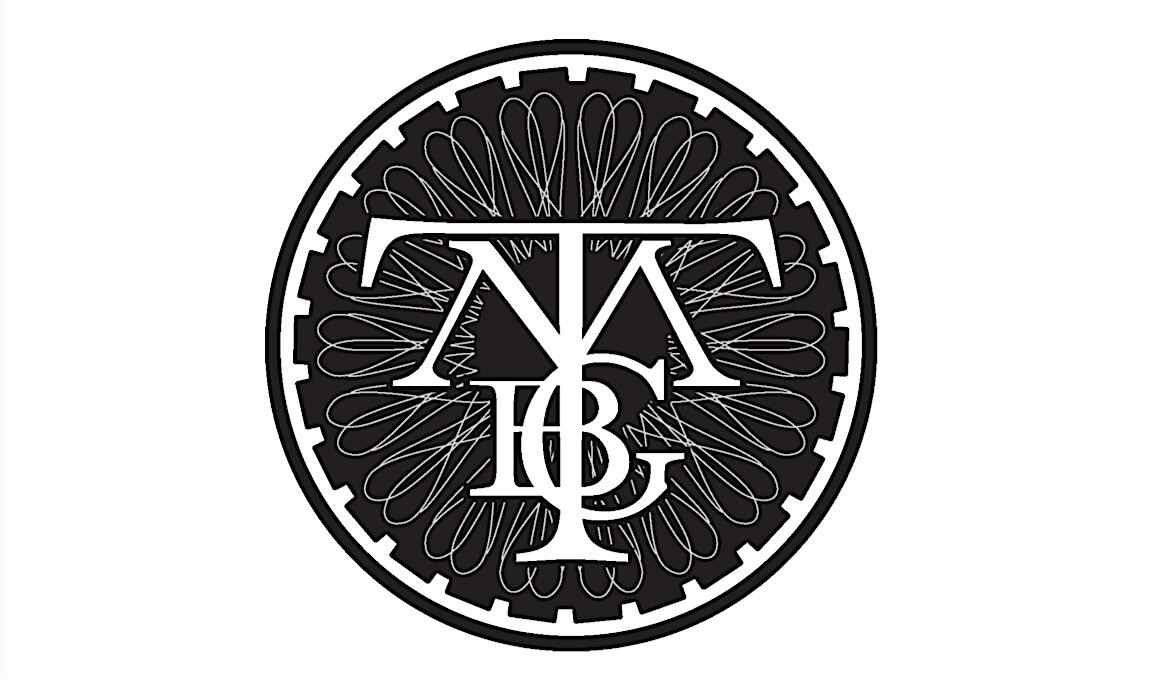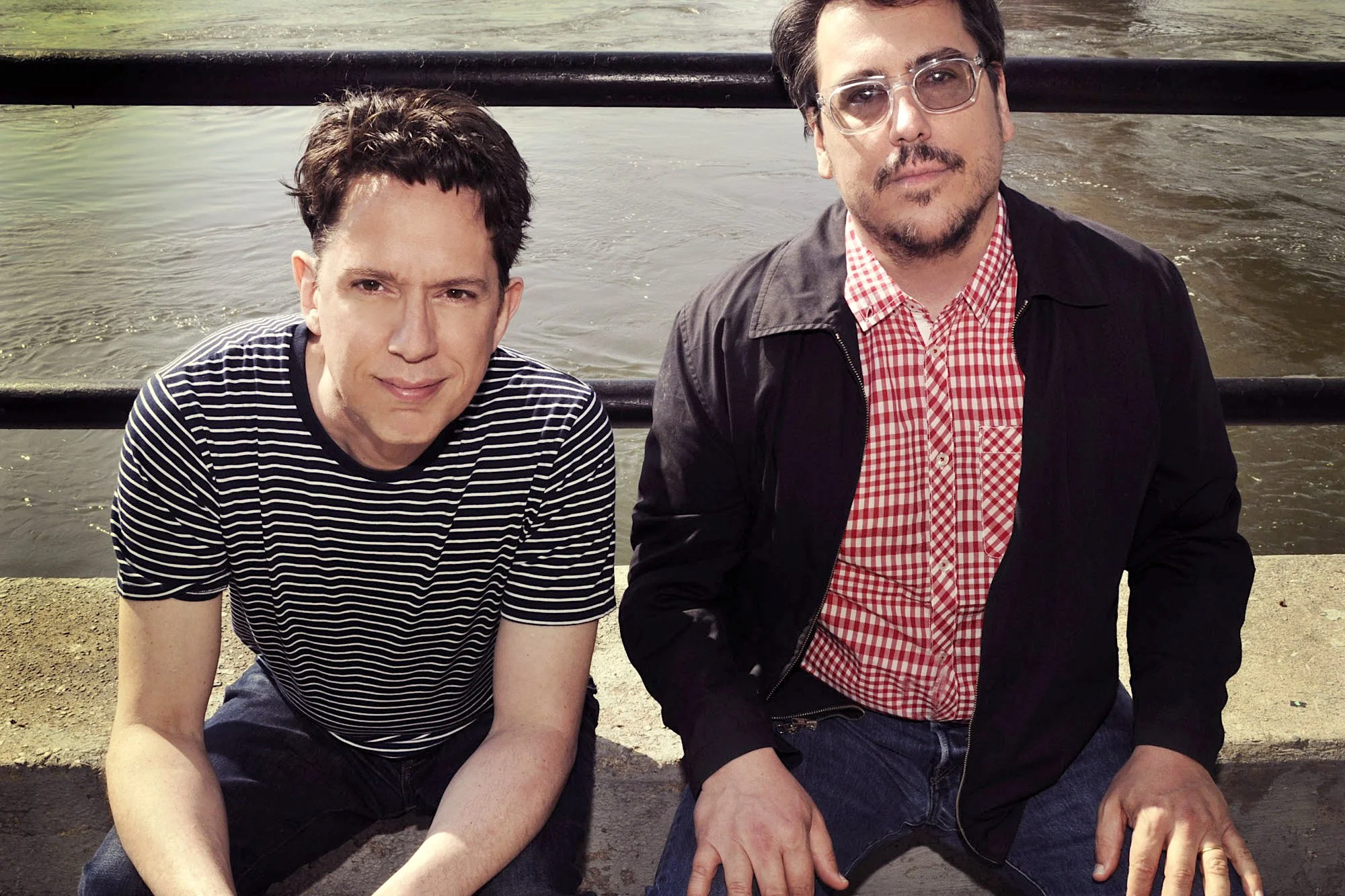Q&A: They Might Be Giants Aren’t Just for Kids and Still Aren’t the Proclaimers
by Marc Spitz, Vanity Fair July 14, 2011
For almost 30 years, They Might Be Giants (John Flansburgh and John Linnell) have been releasing music that’s both snarky and sweet, morbid and whimsical, a little pop and a little avant-garde. Beginning in 2002, with the enhanced CD and book No!, they applied their sensibility to a trilogy of albums geared toward children. The shocking success of these (2005’s Here Come the ABCs went gold; 2008’s Here Come the 123s won a Grammy; 2009’s Here Comes Science was nominated) threatened to upstage everything else they did. The new album Join Us marks a return to their classic sound. While playful (the song “Cloisonne” features a singing raindrop), it is strictly for grown-ups. Here John Flansburgh (bespectacled John) discusses the band’s early years in Lower Manhattan, their struggle to win and keep casual fans, and why they’re not going to be walking 500 miles anytime soon.
___
Marc Spitz: They Might Be Giants came out of a downtown New York scene in the 80s that was very fashion friendly. And yet you weren’t embraced by that crowd in the same way as other bands were. It that because you were funny?
John Flansburgh: The thing about any scene is that it’s very hard to sum up for somebody who doesn’t know the scene. The constellations of things that are deemed to fit in or not fit in are just dictated by the people making the scene. We would play the Pyramid Club but we were considered the “rock band.” We were the nice boys who had the rock band. Half the acts that played the Pyramid Club were transvestites and they were also all on heroin so . . .
Marc Spitz: And you weren’t transvestites on heroin.
John Flansburgh: We weren’t transvestites on heroin. Even though we played with a drum machine. In the early days there was a lot more screaming in our shows. There was a histrionic quality to what we did. We started a couple of years after the No Wave movement, bands like DNA and Lydia Lunch. We were part of the first bunch of bands after that movement.
Marc Spitz: There were a couple of recent films about that period, one called Kill Your Idols and more recently, Blank City, which is about the cinema of the era. If you look at the commentators in both movies they’re still so put together. The hair and cheekbones thing. Like a New York City cartoon.
John Flansburgh: There was no mistaking what city you were in. And there was no end to the ambition of the people involved in it—people striving to be as original as they can possibly be. A lot of times people are just thinking about how to fit in. The East Village in the mid-80s was dominated by people thinking, What’s the most fucked-up thing I can do that won’t burn down the venue down. It was very much about phenomenon and causing an instant splash.
Marc Spitz: You and John (Linnell) have now built up a very successful career making records for children. My little niece loves them. Join Us opens with a lyric about a “town full of dicks” and contains a song titled “When Will You Die?” It seems almost reactionary, a signal that you’re back in adult-album mode. Are you?
John Flansburgh: I think we could have had a song on our first album called “When Will You Die?” Talking about death imagery in a very casual way is very They Might Be Giants.
Marc Spitz: Well this new one does seem like a classic TMBG record. Almost a reward for fans without children who may not listen to both sides of your output.
John Flansburgh: We just sort of institutionally split the two audiences from each other the second the kids’ stuff took off. We weren’t trying to figure out how to have a mixed career. Part of it was necessity. We were still playing clubs that might not have accommodations for people under 18. We had to tell people, “This is not for kids,” and be very clear about keeping them separate. If you like TMBG in general you’ll probably find pleasant things in the kids’ stuff. It’s very full-blooded. It’s not some reduced version of what we do.
Marc Spitz: I would imagine you could listen to both.
John Flansburgh: Conceivably you could. We don’t ask people to or expect people to.
Marc Spitz: Do you approach the songwriting differently?
John Flansburgh: That’s a very good question with a very complicated answer. I can tell you what the challenges are. Kids have the patience of a bug. You have to get their attention, and writing a song that’s immediate enough to capture their imagination is very demanding. It’s been difficult to turn away from [the children’s records]. Overnight we had a career as big as the one we’d been working on for 15 years. The truth of the matter is we’ve been chained to the kinder-rock desk for a couple of years now and we’re happy to get back to our roots. This is a kind of crucial time for us as a band - we really need to plant our freak flag in the ground and just be. We need to declare our independence a little bit, professionally. The kids’ stuff is interesting but it also has a sort of governor on it in terms of the kind of writing that we do. We love the things that we’ve made as a band.
Marc Spitz: They Might Be Giants is almost beyond a band. If someone says, “I’m a They Might Be Giants fan,” it often means something beyond one’s taste in music. Not that you don’t have any casual fans . . .
John Flansburgh: Our biggest professional aspiration is to have casual fans. If you’re doing something good, it shouldn’t be a cult thing. Being a cult implies some level of artistic failure. If it’s popular music you should enjoy it for what it is. When we played Bonnaroo, we had this little backstage area. We’re changing out of our sweaty clothes and there’s this knock at the door and a crazy drunk lady who somehow got backstage says, “I just gotta talk to you. I love you guys. I just gotta tell you I’ve been listening to your music my entire life. You’re my favorite band. I just wanna thank you. “500 Miles” got me through college.” And I’m like “500 Miles?” Then I realized she thought we were The Proclaimers.
___
Read the article on the Vanity Fair site here: https://www.vanityfair.com/culture/2011/07/they-might-be-giants-qa

